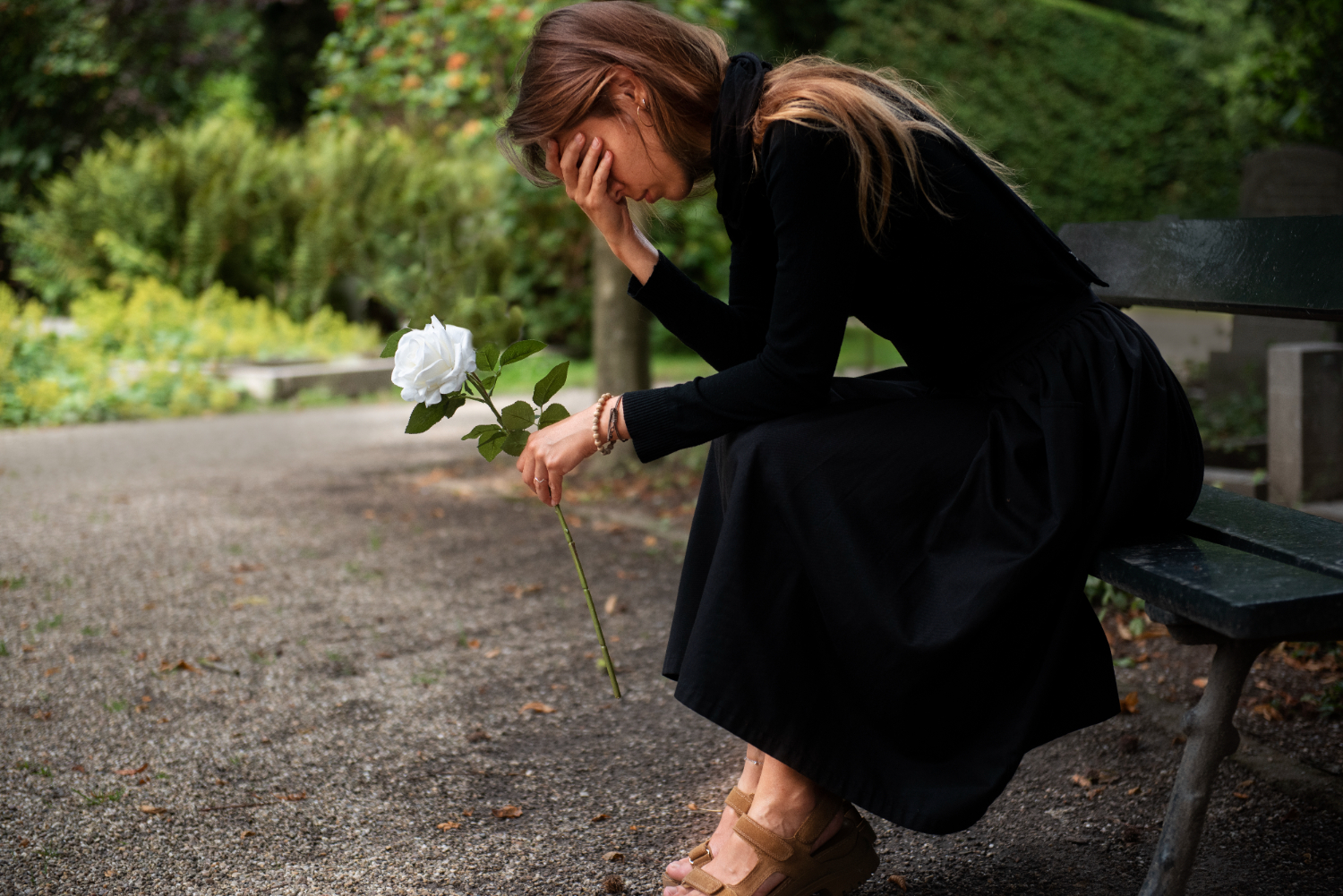The Loneliness of Grief—When No One Truly Understands

Grief is the loneliest place I have ever been. Even when I am surrounded by people, I feel separate—like I exist in a different world, one that no one else can see. I listen to conversations, nod at the right moments, smile when expected. But inside, I feel like I am watching life from behind a glass wall. I hear people talk about everyday things—weekend plans, work stress, funny moments with their children—and I feel like I don’t belong in those conversations anymore. Because my world is different now. My world holds a loss they can’t imagine. And that makes me feel so alone.
Table of Contents
- When Words Don’t Reach the Pain
- Finding Connection in the Isolation
- Learning Tools: Easing the Loneliness of Grief
- 1. The “Speaking to the Silence” Practice
- 2. The “Finding Safe Spaces” Reflection
- 3. The “I Am Not Alone” Affirmation
- Guided Meditation: Finding Connection in Grief
When Words Don’t Reach the Pain
People try to be kind. They ask how I’m doing. They remind me they’re here if I need anything. But the truth is, I don’t even know how to put this pain into words. How do I explain what it feels like to wake up every morning knowing my child is gone? How do I describe the emptiness that lingers even in the happiest moments? How do I make them understand that I am forever changed, that the person they once knew is not the person I am now? So I stay quiet. I tell them “I’m okay” because it’s easier than explaining something they might never fully grasp. And the loneliness grows.
Finding Connection in the Isolation
Maybe no one can truly understand my grief. But maybe I don’t need them to. Maybe what I need is not perfect understanding, but simple presence. Maybe what I need is not for someone to fix my pain, but to sit with me in it. Maybe healing isn’t about finding the right words, but about knowing that even in my loneliness, I am not truly alone. Because somewhere, someone else has felt this too. Somewhere, another grieving heart is reading these words and nodding. Somewhere, someone understands—without me having to say a thing. And maybe, for today, that is enough.
Learning Tools: Easing the Loneliness of Grief
Grief can feel isolating, but you don’t have to carry it alone. These tools will help you find
moments of connection, even in the solitude.
1. The “Speaking to the Silence” Practice
When you feel alone in your grief, sit in a quiet space.
Close your eyes and imagine speaking to your child.
Say whatever is in your heart—the things you wish you could tell them, the moments you miss, the love you still hold.
Let this be a reminder that your bond is not broken by loss.
2. The “Finding Safe Spaces” Reflection
Make a list of people who feel safe—not necessarily those who understand, but those who listen without judgment. If you don’t have someone in your life who fits this, consider a grief support group or an online community. Connection doesn’t have to mean talking—it can be as simple as knowing others are walking this path too.
3. The “I Am Not Alone” Affirmation
Place a hand on your heart and say:
“Even in my loneliness, I am connected to love.”
“My child’s love is with me, always.”
“Somewhere, someone understands.”
Let these words be a small light in the darkness.
Guided Meditation: Finding Connection in Grief
Find a quiet place. Close your eyes. Take a deep breath. Imagine yourself sitting in a dark room, feeling the weight of loneliness. But as you breathe, a soft light begins to glow around you. This light represents love—your love for your child, their love for you, and the unseen connection you share with others who carry grief. You are not alone.
You whisper to yourself:
“Even in the silence, love is here.”
“Even in my loneliness, I am connected.”
“My grief is proof of love, and love is never truly alone.”
Stay in this space as long as you need. Let the light hold you. When you are ready, take a deep breath, gently open your eyes, and return to the present moment.
Even in the loneliest moments, love remains. And love connects us all.
Created By: Bethany Orrick
Recommended Blogs
 Blogs
Blogs The Gift of Small Moments—Finding Light in the Midst of Grief
The Gift of Small Moments—Finding Light in the Midst of Grief Grief has a way of shrinking the world.In the...
 Blogs
Blogs When the World Moves On—Feeling Left Behind in Grief
When the World Moves On—Feeling Left Behind in Grief Life has a way of moving forward, even when you feel...
 Blogs
Blogs When the Grief is Too Much—Learning to Take a Break from the Pain
When the Grief is Too Much—Learning to Take a Break from the Pain Some days, grief is everywhere.It’s in the...
 Blogs
Blogs The Ache of Milestones—When Time Moves Forward Without Them
The Ache of Milestones—When Time Moves Forward Without Them Another birthday approaches. Another milestone passes.I find myself caught between two...
 Blogs
Blogs The Holidays Without Them—When Joy and Grief Collide
The Holidays Without Them—When Joy and Grief Collide The holidays are here, and the world feels different. Everywhere I look,...
 Blogs
Blogs The Unexpected Triggers—When Grief Hides in the Smallest Moments
The Unexpected Triggers—When Grief Hides in the Smallest Moments Grief is a shape-shifter. It doesn’t always show up in the...